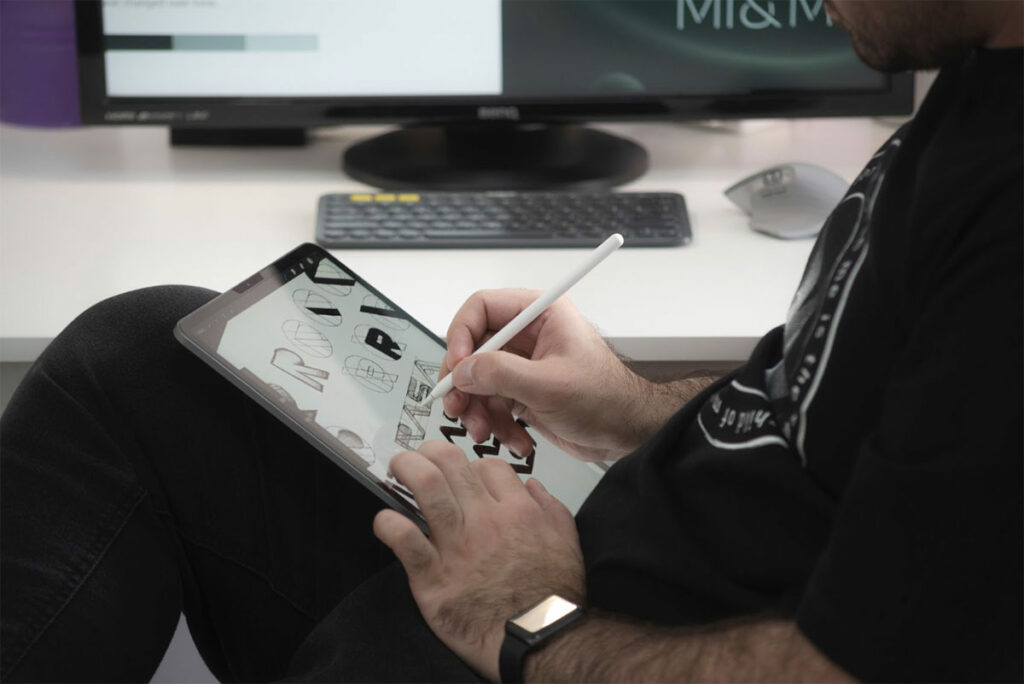Why Logo Design is a Science

Logo design is a science because it requires an understanding of the principles of visual communication. It requires knowledge of how to combine shapes, images, typography and color to create a unique and memorable logo that communicates the core values and identity of your business.
Logo design is also an art form because it involves creativity and aesthetic sensibilities to create something visually appealing that captures the spirit of your brand.
Designers must think outside the box and come up with unique, eye-catching designs that can be used across multiple platforms and channels.
A designer must be knowledgeable about the principles of visual communication, such as balance, contrast and unity.
They also need to understand how color, typography and other elements combine to create a unified message that captures the spirit of your brand.
Research is another important part of the logo design process.
Designers must understand who their target market is, what they value and how they relate to your brand.
You need to research your competition and analyze trends in the industry to ensure that your logo stands out from the crowd.
How to Design a Successful Logo
A successful logo should be timeless and versatile. It should be designed in such a way that it can be used in any format and across multiple platforms. This ensures that your logo will remain relevant even if trends and technology change over time.
Define Your Brand
When designing a logo, it is important to understand the purpose of the logo and what you want to communicate.
Spend time thinking about your brand and how you want to present it visually.
Think of words that best describe your company or product, such as: innovative, professional, friendly, trustworthy etc.
Once you have identified key qualities or features of your brand, you can begin to create a concept for your logo.
Consider colors, shapes, and fonts that reflect the qualities of your brand and have them in mind when creating logo designs.
Your logo should be recognizable, timeless and above all else, memorable.
Test Out Your Logo in Various Formats
Once you have created a logo that reflects your brand, it’s important to test out how it looks in various formats.
Your logo should look good both as a full-color graphic, and when converted into black and white or grayscale.
Try out different sizes to ensure that the logo still looks great when scaled down or enlarged.
You should also check to make sure the logo looks good in both digital and print formats.
You can use an online logo maker like Canva to test out different variations of your design.
By testing out how your logo looks on all these different platforms, you can be confident that it will always look its best.
Get Feedback and Make Adjustments
A logo should communicate something unique about your brand that resonates with its target audience. Therefore, getting an outside opinion can be valuable in ensuring that the logo conveys the desired message.
When receiving feedback, take note of both positive and negative comments.
Negative feedback may be difficult to hear, but it can provide valuable insight into areas that need improvement or alternative approaches to consider.
Once the feedback has been collected, use it to make adjustments to the design until you’re satisfied with the final product.
The goal is to create a logo that will stand out, capture attention and effectively represent your brand.
With careful consideration and thoughtful adjustments, you can create a logo that leaves a lasting impression.
Finalize Your Logo Design & Release It
Finalize creating a logo by creating a set of brand guidelines, as well.
These should include information such as the color palette associated with the logo, acceptable uses of the logo, and any other restrictions or copyright considerations that need to be taken into account.
By following these steps, you can be sure that your logo will properly represent your brand and stand out in the marketplace.
When all of this is complete, you need to release it into the world.
Make sure all the files are saved correctly and in the right formats that you need for various platforms.
If there are any additional elements needed to brand different aspects of your business then make sure those are available as well.
After everything is finalized, upload them to a file-sharing service or store them safely on your computer.
When releasing the logo to your clients, make sure you explain the thought process behind it and what makes it unique.
This will establish the brand identity of your business more effectively and help maintain consistency throughout all media platforms.
With your logo design finalized, you can now take the next step towards creating an effective branding strategy for your business.
Last, but not least, consider registering your logo as a trademark to ensure that it’s protected from infringement.
Taking this extra step will help ensure that your logo remains unique and recognizable for years to come.
Final Word
Once you have designed the perfect logo, use it as often as possible in order to create brand recognition and loyalty.
Your logo will help establish your company’s identity and gain trust from potential customers, so make sure that you put time and effort into creating the perfect logo.
Creating an effective logo is not just about aesthetics but also about the psychology of design.
Logos are an essential element in any brand’s identity and should be carefully crafted in order to properly serve their purpose.
By understanding the creative process, researching industry trends, exploring color schemes and composition, a designer can create a logo that will effectively communicate its message.
Remember that designing a successful logo also requires careful thought and consideration of the company’s mission and goals.
Understanding the creative process, researching industry trends, understanding how different elements play off one another, and considering color schemes are all key steps in creating an effective logo design.
Make sure that you have a knowledgeable designer who can do that.





